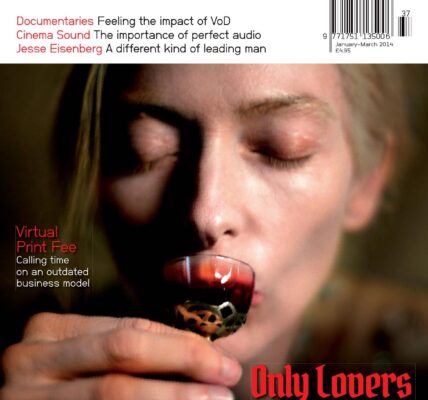Get With the Programme
Laurence Boyce, former director of the Hull International Short Film Festival and programmer for the Leeds International Film Festival, examines the relationship between festivals and filmmakers.
I first saw Looking for an Audience when a fellow programmer posted it on Facebook. For those unfamiliar with the 14-minute short, it was created by US filmmakers Terri DeBono and Steve Rosen, who took their documentary Boyhood Shadows to the Swansea Bay Film Festival. Whilst there, they discovered a disingenuous organiser, no publicity material or schedules, and very few audience members; in short, the entire festival was a shambles. Soon, spurred on by the online success of the film, more details of the Swansea Bay Film Festival came to light with numerous tales of woe that included exorbitant entry fees, shady dealings and an overwhelmingly negative view of the event. With patron Michael Sheen withdrawing his support for the festival amidst the controversy, it seems that the notoriety of Swansea Bay may ultimately prove to be its undoing.
Yet, beyond the obvious failings of the festival, the film also raises questions about the relationship between filmmakers and organisers. As a veteran programmer, I’ve often wondered whether filmmakers really know about how a festival is put together. Indeed, it seems that the programmer’s role is often seen as the same as a critic: we sit there saying ‘that’s good’ or ‘that’s bad’ and then show the films. But it’s infinitely more complex than that. Putting together a programme is like piecing a massive jigsaw puzzle where you have to balance the needs of yourself, the audience and filmmakers—and, more often than not, the day-to-day pressure of actually organising the festival—to present a brilliant line-up.
I asked Matt Lloyd, director of the Glasgow Short Film Festival and author of How the Movie Brats Took Over Edinburgh, a history of the Edinburgh International Film Festival, just what he thinks about the importance of the role of the programmer.
“With the opportunity for self-distribution online, not to mention the ever-rising number of festivals, the importance of the individual programmer in relation to filmmakers is on the wane,” he explains. “I think the real question is what is the responsibility of the programmer? That’s to say, having selected a film for your festival, what is your responsibility as a programmer in ensuring that that filmmaker gets the most out of your festival?”
And does he ever think that filmmakers can have unrealistic expectations of festivals?
“Yes, of course, sometimes entirely unreasonably so. Other times they have simply misjudged the scale of the festival. Probably the most common would be over-estimating the potential audience, industry presence or press interest [or] that, as individuals, we can directly transform their career prospects one way or another. We can’t—only they can do that. But we can, and should, create opportunities for them to work towards doing so.
“I think it’s the responsibility of the filmmaker to research any festival that invites them to screen their film, and it’s the responsibility of the programmer to fairly represent the scale and reach of their event to invited filmmakers.”
Filmmaker Simon Ellis has seen his film Soft win countless awards at numerous festivals, and has also received retrospectives at the likes of prestigious festivals such as Tampere, Sapporo and Cork. So, as a veteran of the circuit, what does he expect from festivals?
“It’s a two-way deal,” he says. “There wouldn’t be a festival without the films and thankfully most of them are very hospitable, often extending their hospitality beyond screenings to parties or guided tours of their town or whatever. What I can’t abide are those few festivals that charge an entry fee and don’t even return the filmmakers’ screening tape. There is one here in the UK. Where does the money go? That is about as disrespectful as it gets, for me.”
Indeed, Ellis makes a crucial point. Festivals would not exist without filmmakers and their films, while festivals can provide exposure and opportunities. As Ellis says, “[Festivals are] extremely important. It has been the main outlet for people to see my work, and the arena from which I have learned most about my craft.” Events such as Swansea Bay are a sad example of what happens when one side doesn’t live up to the bargain. Yet, they thankfully seem few and far between.
While the role of film festivals is constantly evolving, the relationship between programmers and filmmakers is still of vital importance. The majority of us do this because, like filmmakers, we believe in great stories, inventive films and giving audiences the chance to see them. Whilst researching this piece, a question was asked on Twitter about what the responsibility of the programmer was. One answer read: ‘Juxtapose, balance, emphasise, revitalise, reveal, research, support the undersupported raw talent, inspire.’ I couldn’t have put it better myself.
Laurence would welcome any comments on this article at laurence@netribution.co.uk or @LaurenceBoyce
…











